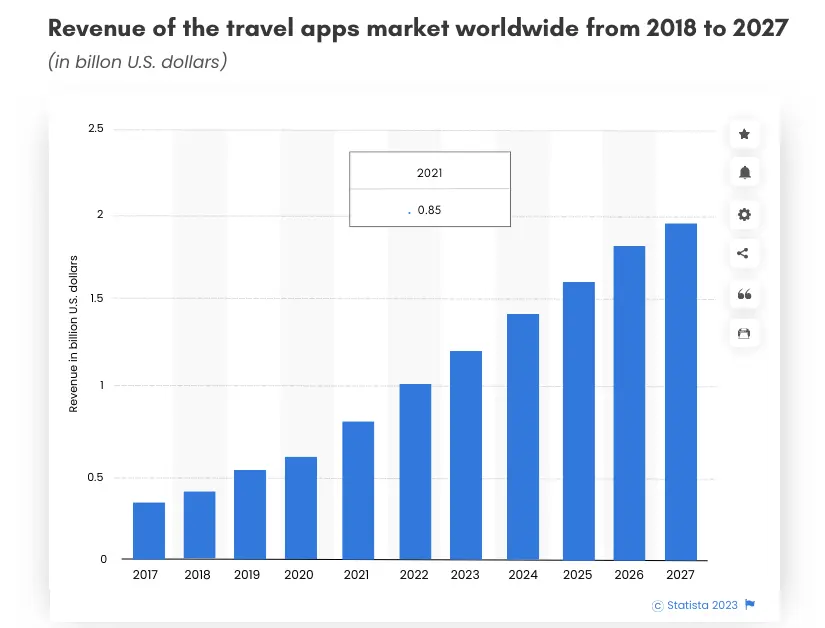The first step in developing a travel app is understanding the market landscape. With the coronavirus pandemic taking a toll on the travel industry, travel apps reported 70% less traffic and bookings in 2020. However, the situation improved in 2021 and travel apps were estimated to generate a revenue of $730M between 2023-27. Contrary to this estimate, with the travel industry now booming, the revenue for the travel app market is now estimated to reach about $2B by 2027.

The travel and tourism sector is expected to generate 73% of revenue through online sales. And the recent 5 years has been an important period for growth of online travel sales via mobile as it increased from 36% to almost 50%.
This directly indicates the huge potential that is there to tap into. And a travel app is all you need to start leveraging the same. But, isn’t building a mobile website a cost-effective option? According to a report by Criteo Analytics, travel apps for Android and iOS attract 130% more conversions compared to a mobile browser. This means building a travel app won’t just help you cater to the existing clients but hook prospective leads as well.
Now, with millions of apps already available for download, it’s crucial to identify the gap in the market and determine how your app can stand out from the competition.
Also Read: The Pros and the Cons of Android App Development
Where to start?
Start by researching existing travel apps and analyzing their features, user reviews, and ratings. This will give you a better understanding of what works and what doesn’t in the industry. Additionally, consider the current trends and demands in the travel sector. Are there any untapped niches or underserved markets that your app could cater to?
Once you have a clear idea of the market, it’s time to identify your target audience. Who are the potential users of your travel app? Are they solo travelers, families, business professionals, or adventure enthusiasts?
Understanding your target audience’s preferences, pain points, and expectations will help you tailor your app to their specific needs. Conduct surveys, interviews, and focus groups to gather valuable insights and feedback directly from your target users. This will ensure that your app addresses their pain points and offers a seamless user experience. Remember, the success of your app depends on how well it resonates with your target audience. Therefore, being thorough in your research will help not only in terms of decision-making but with the overall planning and execution as well.












